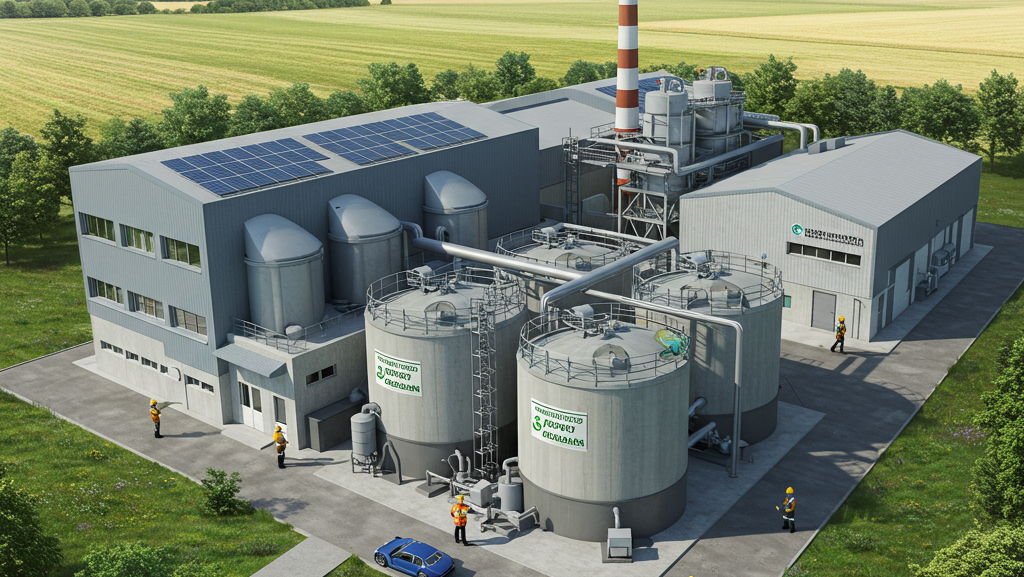Understanding the Challenges of Small-Scale Farming
Small-scale farming plays a crucial role in local economies and food systems, yet farmers operating without machinery face numerous challenges that can threaten their livelihood. One of the immediate obstacles is the limited capital available for purchasing equipment. This financial constraint often hampers access to essential tools that can significantly enhance productivity. Without reliable machinery, tasks such as planting, irrigation, and harvesting become labor-intensive and time-consuming, leading to decreased efficiency.
Additionally, labor shortages represent a significant hurdle for small farmers. Many individuals are deterred from agriculture due to the physical demands of the work and the perception of low returns. As a result, broke farmers often find themselves overburdened with multiple responsibilities, stretching their time and efforts thin. For those unable to hire help, it becomes increasingly difficult to maintain their operations, especially during peak growing seasons or emergency situations.
Another critical issue affecting small-scale farms is the impact of climate conditions. Extreme weather events, such as droughts or floods, can decimate crops and disrupt planting schedules, disproportionately affecting those without financial buffers or advanced technology to mitigate risk. Many farmers rely on traditional methods that may not suffice in the face of changing climatic conditions, further highlighting the urgent need for adaptive strategies.
Given these challenges, it is crucial for broke farmers to adopt innovative and resourceful approaches for managing their farms. From implementing sustainable practices that enhance soil fertility to exploring permaculture principles, there are myriad strategies that can optimize agricultural outcomes without the need for heavy machinery. This adaptability not only helps in overcoming immediate hardships but also contributes to long-term sustainability and resilience in small-scale farming.
Alternative Farming Techniques: Embracing Manual Labor
In an era where mechanization dominates the agricultural landscape, alternative farming techniques that embrace manual labor present a viable option for farmers operating without machinery. These methods emphasize the use of simple hand tools and physical labor to cultivate crops, thereby fostering a deeper connection with the land and enhancing soil health. Among these techniques, hand planting stands out as a method that not only allows for precise placement of seeds but also reduces soil compaction, aiding in better aeration and moisture retention.
Weeding, another critical aspect of farming, can be effectively managed through manual labor. By employing hand-held tools like hoes and rakes, farmers can systematically remove unwanted plants that compete for nutrients and water. This practice not only improves crop yield but also promotes a healthier growing environment. The tactile interaction with the soil allows farmers to better understand its condition, leading to more informed decisions about land management.
Harvesting by hand is equally significant, particularly for small-scale farmers. The use of simple tools such as sickles and baskets enables more selective harvesting, ensuring that crops are picked at their peak ripeness. This method not only enhances product quality but also mitigates damage to the remaining plants. The need for fewer resources ultimately leads to reduced expenses, making manual labor a cost-effective approach to farming.
Moreover, the physical activity involved in these techniques contributes to improved farmers’ health and well-being. Engaging with the land through hands-on work can be rewarding and fosters a sense of community among farmers as they share knowledge and strategies. In conclusion, embracing manual labor and alternative farming techniques can significantly enhance the productivity and sustainability of agriculture for those without access to machinery.
Crop Selection for Maximum Yield and Minimum Investment
For farmers operating on a limited budget and without access to advanced machinery, crop selection plays a crucial role in achieving optimal yields. Choosing the right crops that align with local climate conditions and available resources can significantly enhance productivity while minimizing investment. Fast-growing, low-maintenance crops are especially advantageous in such contexts, as they allow farmers to see quicker returns without a significant financial burden.
When evaluating potential crops, it is essential to consider those that are inherently suited to the local environment. This includes understanding the soil type, climate, and typical weather patterns in the region. Crops such as beans, radishes, and peppers are known for their ability to thrive in various climates and require minimal interventions. These crops not only grow relatively quickly but also have a high market demand, which can enhance profitability.
Furthermore, integrating companion planting can maximize yields further without significant investment. This method involves planting different crops in proximity to improve growth and productivity. For example, combining nitrogen-fixing legumes with heavier feeding plants can enhance soil fertility naturally, reducing the need for synthetic fertilizers. Additionally, utilizing crops that provide ground cover can help suppress weeds, cutting down labor and maintenance costs.
Another strategic approach involves selecting native or drought-resistant varieties that can withstand poor soil conditions or variable rainfall. These types of crops tend to be more resilient, requiring less water and fewer resources, making them ideal for farmers with limited capacity. By employing a thoughtful crop selection strategy focused on low investment and high returns, farmers can effectively maximize their agricultural potential while navigating the constraints of traditional farming practices.
Utilizing Organic Practices for Sustainability
Organic farming practices offer a wealth of advantages for farmers operating without the support of machinery. By focusing on sustainable methods such as crop rotation, companion planting, and organic pest control, these strategies can enhance overall productivity while safeguarding soil health and reducing reliance on chemical inputs.
Crop rotation, a core principle of organic farming, involves changing the type of crops grown in a specific area from season to season. This practice not only helps to prevent the build-up of pests and diseases but also improves soil fertility. Different plants contribute and extract various nutrients from the soil, leading to a more balanced ecosystem. By diversifying crops, farmers can enhance yield and reduce dependency on synthetic fertilizers, thereby fostering a more sustainable farming approach.
Companion planting serves as another effective organic strategy, where certain plants are grown together to enhance growth and deter pests. For example, intercropping herbs with vegetables can create natural repellents against harmful insects. Additionally, the diverse planting schemes improve pollination and overall crop resilience. This synergy cultivates a healthier farm environment that optimizes resource usage, leading to improved outputs without necessitating heavy machinery.
Organic pest control is crucial for maintaining productivity in a sustainable manner. Utilizing methods such as introducing beneficial insects, creating physical barriers, and applying natural repellents can effectively manage pest populations without harmful chemicals. By fostering natural predator-prey relationships, farmers can keep pest populations in check while promoting biodiversity on their farms.
Ultimately, incorporating these organic practices not only enhances productivity but also helps maintain a healthy ecosystem. The reduced need for chemical inputs leads to lower operational costs, which can significantly contribute to better profit margins for farmers. Adopting these sustainable practices is essential not only for enhancing farming potential but also for the broader goal of environmental stewardship.
Community Support and Collaborative Farming
In the realm of agriculture, particularly for broke farmers, the strength of community support and networking cannot be overstated. Collaboration among farmers can lead to a pooling of resources, knowledge, and labor, which ultimately enhances the agricultural output without the heavy financial burden of purchasing expensive machinery. Collaborative farming initiatives allow like-minded individuals to come together, creating a robust support system that champions shared goals and collective efforts.
One effective approach is the establishment of farming collectives or cooperatives. These groups enable farmers to work side-by-side, sharing responsibilities and resources such as tools, land, and labor. By organizing workdays where members contribute their time and skills, farmers can accomplish significant tasks efficiently while minimizing individual costs. For example, a collective might arrange for communal planting, weeding, and harvesting days, which would not only improve productivity but also foster a sense of community and support among participants.
Networking is another critical component of community support. Farmers can share knowledge about crops, sustainable practices, and local agricultural markets. Workshops and meetings can be organized at local community centers or farms, allowing for skill exchanges and the sharing of innovative techniques that have proven helpful in overcoming challenges faced by broke farmers. Furthermore, local extension services or agricultural organizations often provide resources and technical support that can be utilized by these groups, enhancing their capabilities and resilience.
Utilizing online platforms and social media can also aid in building a farming network, allowing farmers to connect with others who may possess similar resources or challenges. Through regular communication, farmers can strategize on pooling purchases, joint sales efforts, or even mentorship programs that rely on shared experiences. Overall, embracing community support and collaborative farming practices can significantly lift the prospects of broke farmers, transforming limitations into opportunities for sustained growth and improvement in farming outputs.
Leveraging Technology: Low-Cost Tools and Apps
The integration of technology in farming has become increasingly vital, especially for farmers who may lack access to expensive machinery. Low-cost tools and mobile applications are designed to enhance agricultural efficiency without imposing a heavy financial burden. These innovative solutions empower broke farmers to effectively manage their resources, optimize planning, and monitor their crops.
One of the most effective ways for farmers to leverage technology is through mobile applications tailored for agricultural purposes. For instance, apps like “FarmLogs” and “AgriSync” provide essential features such as weather forecasting, crop monitoring, and task management. These platforms allow farmers to make informed decisions based on real-time data, ensuring that they can respond promptly to changes in conditions.
Furthermore, affordable pest management tools can significantly enhance productivity. For example, mobile apps that identify pest species or provide integrated pest management strategies help farmers take proactive measures against infestations. Knowledge-sharing platforms can also connect farmers with experts and fellow growers, facilitating the exchange of best practices and solutions to common challenges.
In addition, simple yet effective tools such as soil moisture sensors and crop health monitoring devices can be sourced at a low cost. These devices enable farmers to keep track of critical variables affecting crop yield, which can lead to better resource allocation and reduced waste. By utilizing these affordable technological solutions, farmers can achieve a more precise understanding of their farming operations.
Ultimately, technology is an invaluable asset for broke farmers seeking to maximize their agricultural potential. By embracing low-cost tools and mobile applications, they can enhance productivity and farm management without substantial financial investments. This strategic use of technology can empower even the most resource-constrained farmers, paving the way for improved outcomes in their agricultural endeavors.
Financial Management: Budgeting for Success
Effective financial management is a cornerstone for achieving success in farming, especially for those operating without heavy machinery. The principle of budgeting plays a pivotal role in ensuring that resources are allocated efficiently. A well-structured budget enables farmers to identify their essential costs, prioritize expenditures, and avoid unnecessary financial pressures. It is crucial to delineate between fixed and variable costs, recognizing which expenses can be adjusted based on available resources or anticipated crop yield.
In addition to budgeting, another pathway to enhancing financial stability involves seeking grants designed specifically for small-scale farmers. Numerous organizations and governmental bodies offer grants that can cover various operational costs. These grants might target specific initiatives such as sustainable farming practices, community development, or innovation in agricultural techniques. It is advisable to thoroughly research grant opportunities within your locality and to prepare comprehensive applications that clearly articulate how these funds will amplify your farming efforts.
Moreover, applying for low-interest loans can provide an additional financial lifeline. Many financial institutions and cooperative banks have tailored loan programs aimed at supporting farmers with limited access to high-cost credit. These loans typically come with favorable terms, allowing farmers to invest in necessary resources like seeds, soil amendments, or crop protection measures. When applying for loans, it is essential to present a solid business plan that underscores how the funds will enhance productivity and subsequently lead to a sustainable farming model.
In sum, prudent financial management, encompassing effective budgeting, the pursuit of grants, and the option of low-interest loans, can significantly alleviate the challenges faced by farmers operating without heavy machinery. By strategically investing limited resources, farmers can cultivate resilience and adaptability, ultimately maximizing their farming potential.
Building Resilience through Diversification
In an era where uncertainties can greatly impact agricultural productivity, the practice of diversification has emerged as a crucial strategy for farmers, particularly for those operating without machinery. Diversifying crops entails cultivating a mix of different plant species within the same land area, which can enhance soil health and reduce vulnerability to pests and diseases. This approach not only improves the resilience of farms but also provides multiple income avenues that can be essential for financial stability.
One of the primary benefits of crop diversification is that it helps mitigate the risks associated with market fluctuations and changing consumer preferences. For example, if a farmer relies solely on one type of crop, such as corn, any decline in demand or failure of that crop can lead to severe economic strain. However, by growing a variety of crops—such as vegetables, fruits, and grains—farmers can effectively safeguard against potential losses, ensuring a more consistent cash flow throughout the year.
In addition to varied crops, farmers can explore ancillary activities that can bolster their income. Selling produce at local farmers’ markets offers an excellent opportunity to connect directly with consumers, potentially fetching higher prices than traditional wholesale routes. Engaging in community-supported agriculture (CSA) programs also allows farmers to secure upfront payments from consumers who commit to purchasing a share of the harvest. This model not only enhances financial security but also fosters better relationships between farmers and their communities.
Furthermore, integrating niche markets—such as organic or heirloom varieties—into a diversified farming strategy can attract a distinct customer base that may be willing to pay premium prices. By thoughtfully combining crop diversity with supplementary income sources, farmers without machinery can create a robust economic foundation that minimizes risk and maximizes potential returns, thus enabling a sustainable future for their agricultural endeavors.
Success Stories: Inspiring Examples of Broke Farmers
The landscape of farming is often portrayed as dependent on heavy machinery, expensive tools, and advanced technology. However, numerous broke farmers have carved out successful niches through creativity, resilience, and resourcefulness, showcasing that profitability in agriculture does not necessarily hinge on machinery. These inspiring stories highlight how farmers, despite financial limitations, have thrived by leveraging their skills and local resources.
One remarkable example is the journey of a small-scale organic farmer in Oregon. Faced with financial constraints, this farmer adopted crop rotation and intercropping techniques to maximize the land’s potential without heavy machinery. By cultivating a diverse range of crops, they improved soil health, reduced pest infestations, and optimized yields. This strategy not only generated revenue but also established a robust consumer base committed to supporting local, sustainable agriculture.
Another successful case comes from a group of broke farmers in Ghana who formed a cooperative. By pooling their limited resources, these farmers were able to share knowledge and techniques for traditional farming methods, such as agroecology. This collaborative effort helped them implement rainwater harvesting systems to facilitate irrigation, significantly enhancing crop resilience during dry seasons. Their model emphasizes the power of community in overcoming financial barriers, inspiring many to consider cooperative farming as a viable strategy.
Moreover, a young farmer in India transformed an abandoned plot into a thriving garden by using organic compost made from kitchen waste. Through experimentation, they developed unique home-based solutions for pest control, which avoided the need for expensive chemicals. Their success not only provided a sustainable income but also educated their local community on the importance of eco-friendly practices in farming.
These stories illustrate that, irrespective of financial limitations, farmers can achieve success and improve their livelihoods through innovative methods and community collaboration. By embracing local resources, knowledge exchange, and sustainable practices, broke farmers can indeed maximize their farming potential and inspire others on similar journeys.





